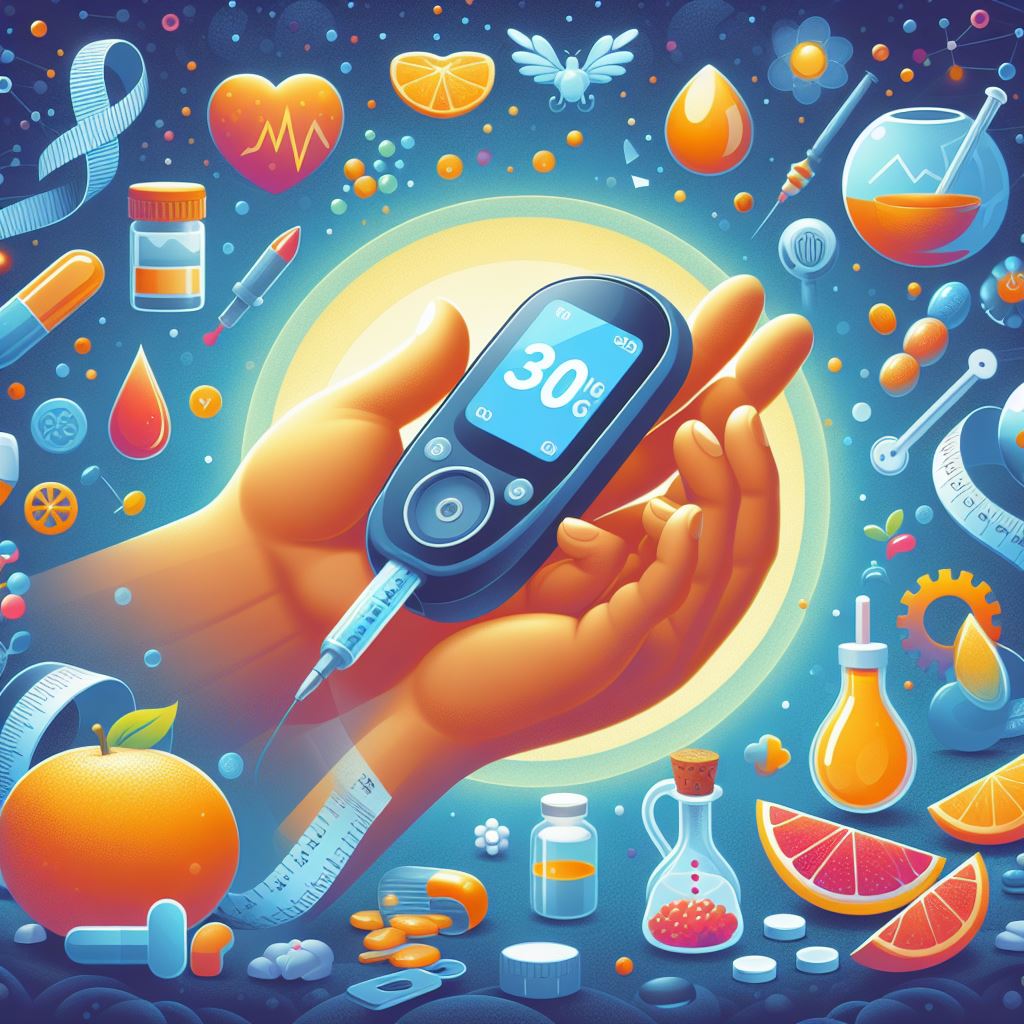20 Tips how to Manage Diabetes and guide for a healthy life
“Explore effective ways to manage diabetes with our comprehensive guide. Uncover insights into the global impact, prevalence, and prevention strategies of this silent health concern. Empower yourself for a healthier future.”
Types of Diabetes
Diabetes is mainly of two types. Type 1 and Type 2.
- Type 1, often diagnosed in childhood or adolescence, results from the body’s immune system attacking and destroying insulin-producing cells in the pancreas. This form necessitates lifelong insulin therapy to manage blood sugar levels.
- Type 2 Conversely, Type 2 diabetes typically develops in adults, characterized by insulin resistance or insufficient insulin production. Its onset is greatly influenced by lifestyle variables such as heredity, physical inactivity, and obesity. Unlike Type 1, Type 2 is often preventable or manageable through lifestyle modifications, medication, and sometimes insulin therapy.
Impact and Prevalence
The global prevalence of diabetes has surged dramatically in recent decades. The International Diabetes Federation estimates that 537 By 2021, millions of adults globally will be dealing with diabetes., with projections indicating a staggering rise to 784 million by 2045 if current trends persist. These numbers illustrate the magnitude of this health crisis, impacting individuals, families, and healthcare systems worldwide.
Health Implications and Complications
- Short-term Effects
Uncontrolled diabetes can cause hypoglycemia (low blood sugar) or hyperglycemia (high blood sugar), which are serious health problems. These fluctuations can cause symptoms like fatigue, increased thirst, blurred vision, and, in extreme situations, diabetic ketoacidosis, a potentially fatal illness that needs to be treated right once.
- Long-term Complications
The chronic nature of diabetes significantly increases the risk of various complications affecting multiple organ systems. Cardiovascular problems, such as heart disease and stroke, represent the most significant cause of mortality among individuals with diabetes. Additionally, diabetes can lead to kidney damage (nephropathy), vision impairment or blindness (retinopathy), nerve damage (neuropathy), and foot complications, including infections and amputations.
Addressing the Challenge: Manage Diabetes for Prevention.
- Management Strategies
To Manage diabetes involves a multidisciplinary approach encompassing lifestyle modifications, medication, regular monitoring, and education. For Type 1 diabetes, insulin therapy is vital, while individuals with Type 2 diabetes may require oral medications, insulin, or other injectable drugs. Blood sugar monitoring, regular exercise, a balanced diet, and regular check-ups with the doctor all play critical roles in managing the illness and minimizing consequences.
- Preventive Measures
Preventing diabetes or delaying its onset is feasible through proactive measures. Emphasizing healthy eating habits and maintaining a healthy weight, Type 2 diabetes risk can be considerably reduced by abstaining from tobacco use and participating in regular physical activity. Community-based interventions, educational programs, and public health initiatives also raise awareness and promote preventive measures.
- The Role of Technology and Innovation
Advancements in technology have revolutionized diabetes management. Continuous glucose monitoring systems, insulin pumps, mobile applications for tracking food intake and blood sugar levels, and artificial pancreas systems represent innovative tools aiding individuals in better managing their condition. Furthermore, ongoing research explores stem cell therapies, genetic interventions, and novel medications to improve treatment efficacy and outcomes.
- Societal Impact and Challenges
Economic Burden
The economic burden of diabetes extends beyond individual healthcare costs to encompass broader societal implications. Lost productivity, disability, and healthcare expenditures strain economies and healthcare systems globally. Addressing diabetes requires medical intervention and societal initiatives to mitigate its economic impact.
- Access to Care
Disparities in healthcare access and resources pose significant challenges in managing diabetes. Socioeconomic factors, geographic location, and healthcare infrastructure disparities can limit access to essential medications, education, and quality healthcare services, exacerbating the burden of the disease, particularly in underserved communities.
- Empowering Individuals and Communities
Empowerment lies at the heart of effective diabetes management. Educating individuals about the condition, its management, and the importance of self-care empowers them to take control of their health. Support groups, community outreach programs, and educational campaigns play pivotal roles in fostering this empowerment, creating a support and knowledge-sharing network.
- Multispectral Collaboration
Addressing the diabetes epidemic necessitates collaborative efforts cutting across various sectors. Collaboration between governments, healthcare providers, non-profit organizations, the private sector, and academia is crucial in formulating comprehensive policies, allocating resources effectively, and implementing strategies that tackle the multifaceted aspects of diabetes prevention and management.
- Research and Innovation
Continued investment in research and innovation is imperative to advance our understanding of diabetes and develop more effective prevention and treatment modalities. Research exploring personalized medicine, genetic factors influencing diabetes susceptibility, and interventions to address insulin resistance holds promise for improving outcomes and reducing the burden of the disease.
- Advocacy and Policy Initiatives
Advocacy catalyzes change, driving policy reforms and prioritizing diabetes on the global health agenda. Advocacy efforts aimed at raising awareness, promoting funding for research, advocating for equitable access to care, and implementing policies supporting healthier environments are pivotal in combating the diabetes epidemic on a global scale.
In the realm of chronic illnesses, few conditions pose as complex a challenge as diabetes. Its multifaceted nature, encompassing physical, psychological, and societal dimensions, demands a nuanced understanding and a holistic approach to management and prevention.
Lifestyle Modifications for Diabetes Management
- Importance of Education
To manage diabetes very essential Educational initiatives targeting both individuals and healthcare professionals are instrumental in enhancing diabetes care. Providing comprehensive information about nutrition, physical activity, and medication adherence, these monitoring methods allow people to participate actively in their care and make educated decisions. Moreover, educating healthcare providers ensures they stay updated on the latest advancements in diabetes management, enhancing the quality of care delivered to patients.
- Importance of Nutrition

- Physical Activity
Regular exercise is permanently solution to manage diabetes, as it enhances insulin sensitivity and helps control blood sugar levels. Both aerobic activities, like walking, swimming, or cycling, and resistance training contribute to improved glucose metabolism. Creating a customized workout program in cooperation with healthcare professionals is essential to guarantee safety and efficacy. Read more…
Treatment and Medication Strategies Oral Drugs
Strategies for Medication and Treatment Oral Substances, sulfonylureas, and others are often prescribed to lower blood sugar levels. These medications work in various ways: increasing insulin sensitivity, stimulating insulin production, or reducing glucose production in the liver.
- Insulin Therapy
Insulin therapy is necessary for controlling levels of blood sugar in individuals in individuals with Type 1 diabetes and infrequently in those with Type 2 diabetes. Many kinds of insulin have different durations, peaks, and onsets of action. Advances in insulin delivery systems, including insulin pens and pumps, offer more precise dosing and flexibility in managing diabetes.
- Monitoring and Self-Care Practices
Blood Sugar Tracking
Regular blood sugar checks are necessary to assist people in understanding how meals, physical activity, medication, and stress affect their glucose levels. Continuous glucose monitoring (CGM) systems provide real-time data and trends, empowering individuals to adjust their treatment plans promptly.
- Self-care and Emotional Well-being
The emotional toll of managing diabetes should not be overlooked. Coping with a chronic condition, adhering to a strict regimen, and facing the fear of complications can lead to stress, anxiety, or depression. Support from healthcare professionals, peer groups, and mental health services is critical in addressing these emotional challenges.
- Innovative Technologies in Diabetes Management
Continuous Glucose Monitoring (CGM)
CGM systems offer real-time glucose readings and trend analysis, reducing the need for frequent fingerstick tests. These devices provide a comprehensive view of glucose fluctuations, aiding in more precise insulin dosing and lifestyle adjustments.
- Insulin Pumps and Automated Insulin Delivery Systems
Insulin pumps deliver insulin continuously, mimicking the function of a healthy pancreas. Advanced systems, known as closed-loop or artificial pancreas systems, automatically adjust insulin delivery based on CGM readings, optimizing glucose control.
- Mobile Applications and Telemedicine
The advent of mobile applications allows individuals to conveniently track food intake, physical activity, medication adherence, and blood sugar levels. Telemedicine facilitates remote consultations, enabling healthcare professionals to provide guidance and support, particularly in areas with limited access to specialized care.
- Prevention Strategies: Public Health and Community Interventions
Health Education and Awareness Campaigns
Preventing diabetes requires increasing public knowledge of the early detection of risk factors, symptoms, and significance. Educational campaigns targeting schools, workplaces, and communities promote healthy lifestyles and encourage regular health screenings.
- Policy Interventions and Environment Modifications
Policy measures promoting healthier environments, such as increasing access to affordable, nutritious foods, creating safe spaces for physical activity, and regulating the marketing of unhealthy products, can significantly impact population-wide health outcomes.
- Community Engagement and Support
Community-based interventions, support groups, and peer networks foster a sense of belonging and support among individuals with diabetes. These platforms offer chances for knowledge exchange, experience sharing, emotional support, and improving self-management abilities.
Conclusion:
A Unified Approach Towards a Healthier Future
The management and prevention of diabetes demand a multifaceted approach that integrates medical advancements, lifestyle modifications, community engagement, and policy interventions. By empowering individuals with knowledge, providing access to quality care, fostering technological innovations, and advocating for supportive policies, we can navigate toward a future where the burden of diabetes is significantly reduced.
Collaboration among stakeholders—individuals, healthcare providers, policymakers, researchers, and communities—is paramount as we progress. By addressing the multifaceted challenges of diabetes, we can build a world where individuals living with diabetes thrive, armed with effective manage diabetes strategies and preventive measures that improve their quality of life.
The prevalence of manage diabetes continues to escalate, posing significant challenges to individuals, healthcare systems, and societies worldwide. However, amidst these challenges lies an opportunity for collective action and transformative change. By fostering a culture of prevention, embracing innovation, enhancing education, and advocating for supportive policies, we can steer the trajectory of diabetes toward a more hopeful future.
20 Navigating manage Diabetes Control tips: A Holistic Guide to Relief and Wellness’‘
It’s important to note that while certain lifestyle habits can help manage diabetes, there isn’t a cure. However, here are 20 tips that may provide relief and contribute to better diabetes management:
- 1. Consult Healthcare Professionals: Regularly consult with your healthcare team to discuss your diabetes management plan and make necessary adjustments.
- 2. Stay Informed: Educate yourself about diabetes to better understand its impact and how to manage it effectively.
- 3. Hydration: Drink an adequate amount of water to support overall health and help regulate blood sugar levels.
- 4. Physical Activity: Engage in regular, moderate exercise to promote better blood sugar control and overall well-being.
- 5. Stress Reduction: Incorporate stress-relief techniques such as deep breathing, meditation, or hobbies to manage stress levels.
- 6. Adequate Sleep: Prioritize quality sleep to support overall health and help regulate hormones that influence blood sugar.
- 7. Supervised Fasting: If considering intermittent fasting, consult with healthcare professionals for guidance on safe practices.
- 8. Herbal Supplements: Explore natural remedies like cinnamon, fenugreek, or bitter melon, but always consult with your healthcare provider before incorporating them.
- 9. Chromium Supplements: Some studies suggest that chromium may help improve insulin sensitivity, but consult with your healthcare provider before using supplements.
- 10. Regular Medical Check-ups: Schedule regular check-ups to monitor the overall health and detect any diabetes-related complications early.
- 11. Monitor Blood Pressure: Keep an eye on your blood pressure, as high blood pressure can worsen diabetes-related complications.
- 12. Social Support: Connect with friends, family, or support groups to share experiences and receive emotional support.
- 13. Regular Eye Exams: Schedule regular eye check-ups to detect and address any diabetes-related eye issues promptly.
- 14. Smoking Cessation: Quit smoking, as it contributes to cardiovascular issues that can exacerbate diabetes complications.
- 15. Counseling Services: Seek professional counseling or therapy to address emotional challenges associated with managing a chronic condition.
- 16. Stay Positive: Maintain a positive mindset and focus on the progress you make in managing your diabetes. Celebrate small victories along the way
- 17. Mindful Eating: Practice mindful eating, paying attention to hunger and fullness cues, and savoring each bite.
- 18. Foot Care: Take care of your feet to prevent complications, regularly checking for any cuts, sores, or infections.
- 19. Limit Alcohol: If you consume alcohol, do so in moderation, and be aware of its potential impact on blood sugar
- 20. Weight Management: To manage diabetes is Maintaining a healthy weight through a balanced diet and regular physical activity to improve insulin sensitivity.









Leave a Reply